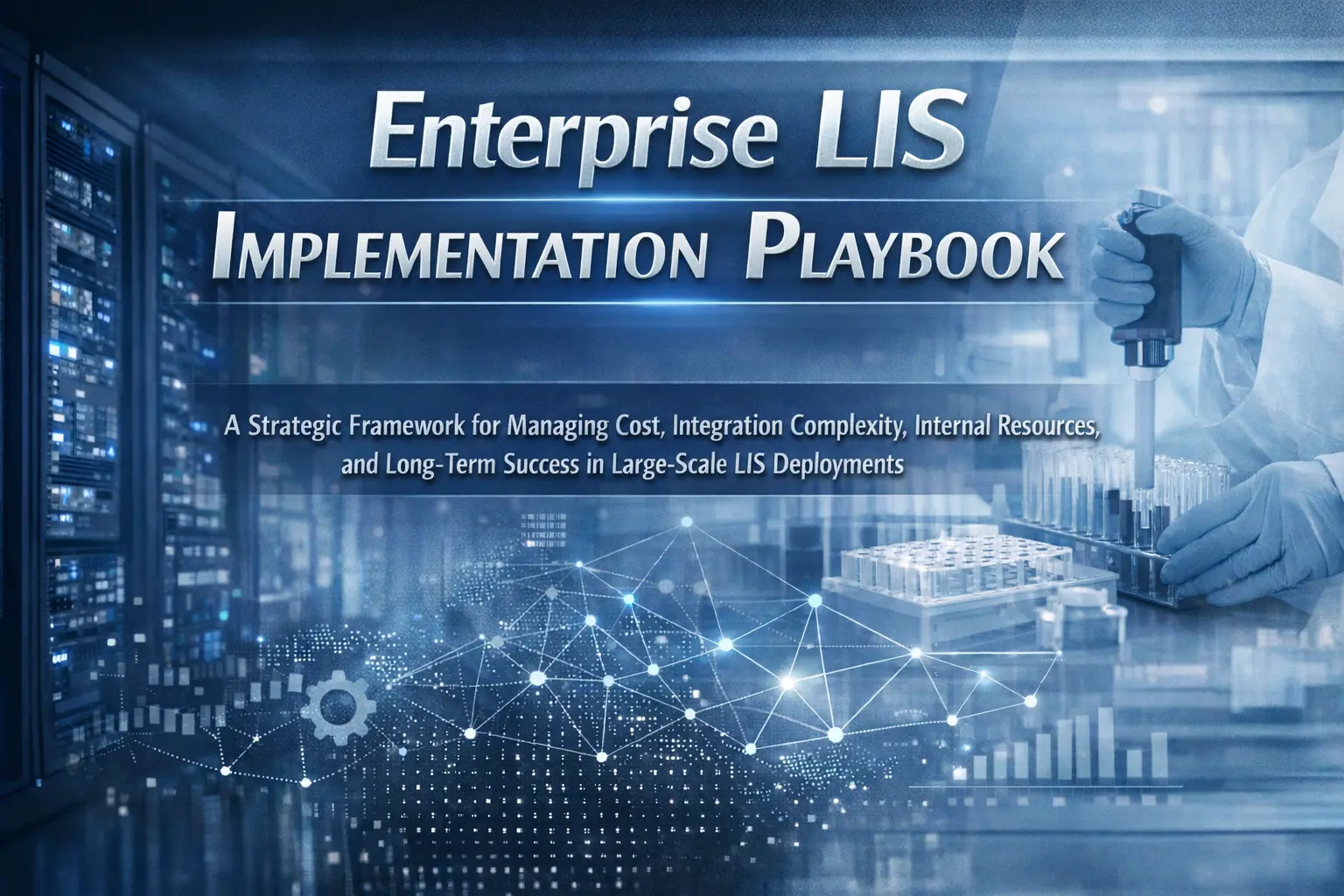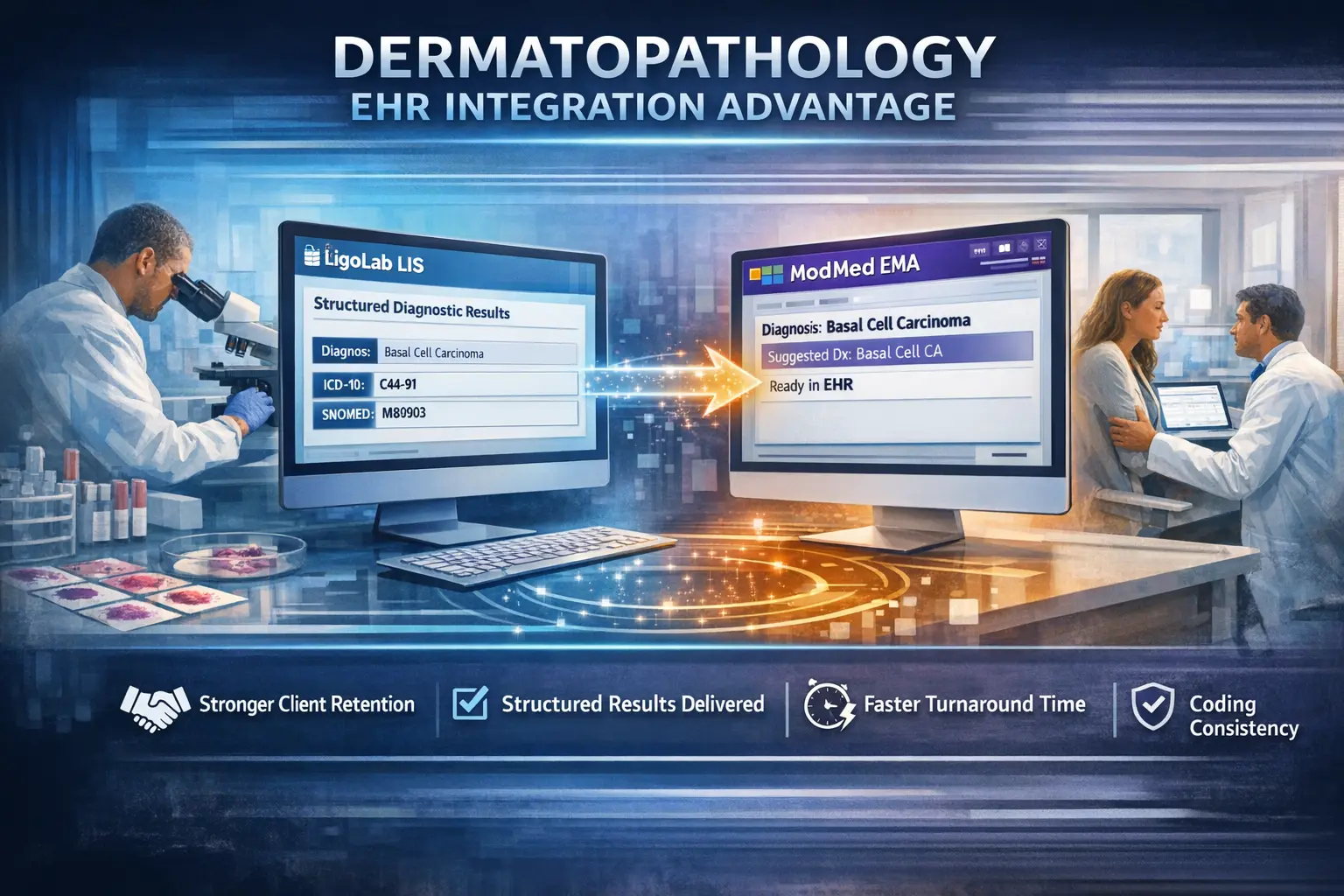Blog
A Comparative Analysis: Laboratory Information Management Systems (Lab LIMS) vs. Laboratory Information Systems (LIS Systems)
June 20, 2025
Laboratory information management systems and laboratory Information systems are laboratory software systems that play pivotal roles in organizing lab workflow and lab management.
While these terms (LIS vs. LIMS) are often used interchangeably, they previously possessed distinct differences based on their original definitions. In this LIS vs. LIMS blog post, we’ll explore the disparities between lab LIMS and LIS medical systems, their respective functionalities and similarities, the benefits and challenges they present in laboratory settings, and what the future holds concerning lab workflow management.

Laboratory Information Management System Software: Efficient Sample Management and Lab Workflow Automation
Laboratory information management system software facilitates the management of samples and their associated data in typically non-medical laboratory environments. Lab LIMS are sample-centric laboratory software systems that automate lab workflow, ensure reliable results, and enable robust sample tracking.
LIMS providers create LIMS lab management software systems commonly utilized in several regulated industries to support lab workflow management and adherence to regulatory standards. They efficiently manage complex data systems and offer integration with other lab systems for seamless data handling.
Examples of LIMS systems - where they are deployed in industry-specific labs:
- Research and development
- Environmental testing
- Food and beverage
- Manufacturing and industrial
A lab LIMS can also be found in clinical and pathology laboratories based in hospitals, medical centers, and independent diagnostic facilities because modern lab LIMS, like modern laboratory information systems (LIS systems), incorporate many of the features and functionalities needed in a clinical or pathology laboratory.
Laboratory Information Management System Benefits:
Quality Assurance and Control: A laboratory information management system helps industrial labs maintain quality standards, such as those mandated by Good Manufacturing Practice (GMP), by facilitating batch tracking and ensuring compliance.
Efficient Data Management: A laboratory information management system can handle large volumes of data generated in industrial lab environments, improving lab performance through automation, standardized data outputs, and retrospective analysis.
Resource Management: A laboratory information management system (LIMS) streamlines reagent tracking and resource utilization, helping labs operate more efficiently and effectively.
The best LIMS (and LIMS vendors) excel in the three areas highlighted above.
Laboratory Information Management System Challenges:
Implementation and Maintenance: Installing and maintaining a laboratory information management system can be challenging, especially when dealing with legacy LIMS lab management software (and legacy LIMS providers). Additionally, lab LIMS integration with other laboratory software systems and hardware can be time-consuming.
Workflow Optimization: Effective use of a laboratory information management system depends on proper training and expertise. The key challenge is delivering comprehensive instruction that covers all user roles and skill levels, ensuring that no team member—regardless of technical proficiency—creates lab workflow inefficiencies due to unfamiliarity with the system.
Learn More: Laboratory Information Systems (LIS vs LIMS) for Data Management
.webp)
Laboratory Information System Software: Managing Patient Information and Clinical Examination Results
Laboratory information systems primarily focus on collecting, processing, storing, and managing patient information and clinical examination results. A laboratory information system (LIS software) is patient-centric and specifically designed for clinical lab workflow and pathology lab management settings.
A laboratory information system links patients to their medical tests, ensuring accurate data capture and seamless access to results through detailed lab reports. A modern, high-performing LIS pathology solution also offers customizable reporting and flexible delivery options tailored to client needs.
Learn More: LIS System Support for Lab Report Customization and Client Preferences
Examples of laboratory information systems - where they are deployed in medical labs:
- Reference (LIS medical)
- Clinical (LIS healthcare)
- Molecular (LIS molecular)
- Pathology (LIS pathology)
Laboratory Information System Benefits:
Data Sharing and Cross-Referencing: A laboratory information system enables secure data sharing with healthcare enterprises and seamless integration with electronic health records (EHR) and laboratory billing systems, improving clinical decision-making, patient tracking, and lab revenue cycle management (lab RCM).
Error Elimination: The best LIS software automates the annotation of data points, reducing the chance of human errors and ensuring the correct match between test orders and corresponding lab specimens at every stage of the clinical lab workflow.
Streamlined Processes: A laboratory information system enhances operational efficiency, accuracy, and scalability, providing visibility into core lab business processes. Additionally, the best laboratory information system vendors can offer their clients all-in-one LIS software with an integrated laboratory revenue cycle management module that improves overall lab operations and revenue capture.
Laboratory Information System Challenges:
LIS System Integration: Integrating a lab information system with other laboratory software systems, such as EHRs, requires careful planning and coordination to ensure seamless data exchange. The best laboratory information systems have an advantage in this regard, as they are equipped with interface engines that maximize connectivity and reduce the time it takes for an interface to go online.
Implementation Complexity: Like a laboratory information management system, deploying advanced and full-featured LIS software requires comprehensive training and expertise to optimize functionalities and benefits. That’s because the best LIS laboratory information systems can be specifically configured to support every role and every department within the lab organization, including the lab billing department.
Editor’s Note: Poor integration remains a significant challenge for many medical laboratories, often signaling that the lab has outgrown its current laboratory information system software.
Learn More: Overcoming LIS Integration Challenges - How Advanced Platforms Like LigoLab Simplify the Transition

The Future of LIS Systems and Lab LIMS (LIS vs LIMS) - a Blurred Line
A laboratory information management system and a laboratory information system are invaluable tools for lab directors and managers, allowing them to manage and organize data effectively.
In terms of medical labs and the system they should choose, that question has become less important thanks to the continued overlap of functionalities supported by both laboratory software systems.
That said, lab directors and managers should be less concerned about what the system is called and more interested in finding the right laboratory information solution. Software that’s built for them and their evolving requirements and excels in enhancing efficiency, productivity, and overall operational performance.
Learn More: What You Need to Know Before Contracting with a Laboratory Information System (LIS) Company
LigoLab: The All-in-One Medical LIS & Lab RCM Platform Powering the Future of Modern Medical Laboratories
LigoLab is a leading provider of enterprise-grade pathology lab software that unifies laboratory information system (LIS) and lab revenue cycle management (RCM) functionality into a single, comprehensive platform. Built for clinical, molecular, and anatomic pathology laboratories, LigoLab helps labs modernize operations by streamlining every stage of the diagnostic and lab billing workflow—from order entry and specimen tracking to compliance, reporting, and reimbursement.
With a fully integrated architecture and no reliance on third-party modules, the LigoLab platform eliminates data silos and manual workarounds, enabling real-time automation, end-to-end visibility, and complete data integrity. Its highly configurable design adapts to the unique needs of each lab, and advanced features like built-in rules engines, quality assurance tools, and business intelligence dashboards support improved accuracy, faster turnaround times, and continuous compliance.
LigoLab also differentiates itself with transparent tiered pricing, unlimited user seats, and ongoing software upgrades at no extra cost, empowering labs to scale without constraints. Backed by a team of lab-experienced professionals and a white-glove support model, LigoLab is more than just a software vendor—it’s a strategic partner for growth, efficiency, and long-term success in a competitive and rapidly evolving healthcare landscape.
Ready to modernize your lab with a unified LIS & RCM platform?
Connect with a LigoLab product specialist today and schedule your personalized demo.







